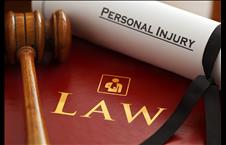
In personal injury law, strict liability refers to certain types of cases in which the injured party does not need to show intentional action, negligence, fault, or even awareness in order to collect an award. This significantly lowers the burden of proof for the plaintiff. The plaintiff only needs to prove an interaction with the defendant, and that an injury resulted; however, the rules as to when strict liability applies are limited to specific situations. When a person engages in any abnormally dangerous activity, there is always a risk of injury. Any injuries that occur when engaged in these activities are strictly the responsibility of the person conducting them, even if that person takes every reasonable safety precaution to avoid injuries. Examples of abnormally dangerous activities include storage of explosives, transportation of flammable or hazardous materials, or anything that emits toxic fumes.
When a company produces a defective product that injures a customer, it is strictly liable for the defect. There are different types of defects such as a flaw in the design of the product itself or a manufacturing defect for that specific item. The defect might also be a failure to warn consumers of a potentially dangerous condition. Any predictable use of a product must be anticipated.
The most common type of strict liability cases involve dog bites. Thirty five states and the District of Columbia have statutes making injuries caused by animals the strict responsibility of that animal’s owner. While these statutes are not uniform, all of them impose some level of liability for dog bites. Some statutes impose strict liability for dogs outside of their enclosures or off a leash. In other cases, a possible defense is that the injured party provoked the attack. In some states, strict liability only applies if the dog has a history of aggressive behavior. A sign warning of the dog’s dangerous propensity might be enough to protect a dog owner from liability. If the injured person was trespassing, he or she might not be able to collect.